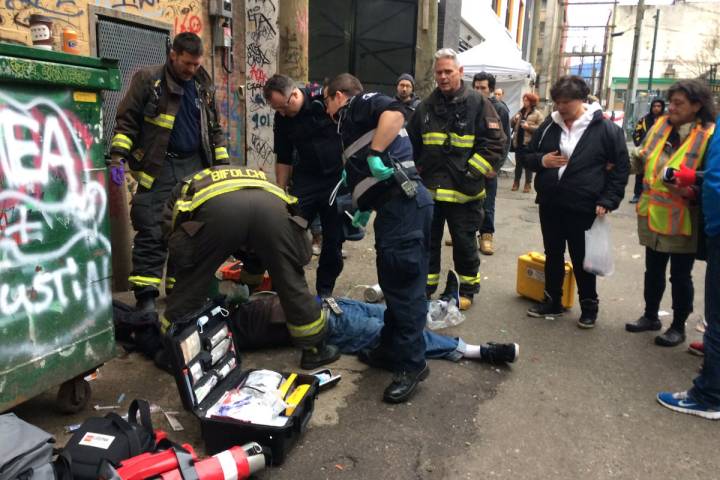The B.C. opioid crisis has reached a new level, with authorities confirming Wednesday was the worst day on record for overdoses in the province.

B.C. Emergency Health Services says April 26 — or this month’s “Welfare Wednesday” — had more overdose calls in a single day than ever recorded. There were 130 calls for overdose responses in total, nine more than the previous record date of Nov. 20, 2016.
“Welfare Wednesday” is the day each month when social assistance cheques, ranging between $610 and $1,101, are handed out.
According to authorities, there were 62 overdose calls in the Vancouver Coastal Health region, 38 calls in Fraser Health, and 18 calls for both the Interior and Island Health regions.
In a 2016 study, the B.C. Centre for Disease Control found overdose deaths were 40 per cent higher during weeks when income and disability assistance cheques were issued, with the largest spikes happening the two days after cheques were distributed.
The B.C. CDC recommended governments vary the timing of cheque distributions and/or issue smaller and more frequent cheques.
Wednesday’s data comes after the City of Vancouver reported 169 overdose response calls for the week of April 17 to 23, an increase of 29 per cent over the week before. There were eight overdose deaths in the city that week, moving the 2017 total to 126 deaths.
It is currently unknown how many overdose deaths occurred on Wednesday.
“The number of preventable deaths in Vancouver and B.C. continues to skyrocket, yet we see a status quo response from the B.C. government to a public health emergency that is now more than a year old,” the City of Vancouver said in a news release on Thursday.
“It’s atrocious that so many people are dying; we need the B.C. government to take action with urgent health care interventions. With the federal government expanding access to safe prescription drugs, there’s no reason the province can’t take immediate action to save lives by expanding drug therapy programs to all those in need.”
—With files from Simon Little (CKNW)
- Buzz kill? Gen Z less interested in coffee than older Canadians, survey shows
- ‘She gets to be 10’: Ontario child’s heart donated to girl the same age
- Bird flu risk to humans an ‘enormous concern,’ WHO says. Here’s what to know
- Naloxone-resistant street drug linked to 9 deaths in Eastern Canada seized in Alberta
















Comments